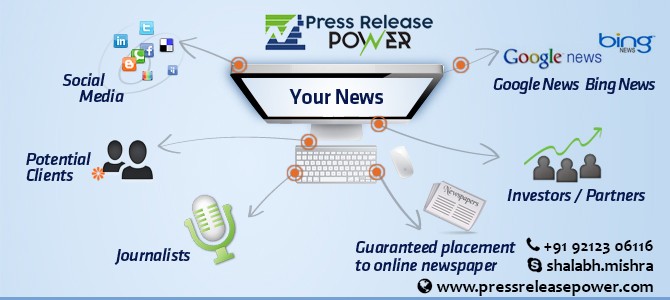New Legislation Sparks Debate Political Battle Lines Drawn
In recent times, the introduction of new legislation has sparked intense debate and drawn clear battle lines within the political landscape. This article will delve into the details of the legislation, explore the arguments put forth by various stakeholders, examine its potential impact on the economy and society, analyze the ensuing political divisions, discuss public opinion and reactions, consider potential amendments and compromises, evaluate the role of media in shaping the narrative, and finally, reflect on the implications for future policy-making.
Overview of the new legislation
The new legislation aims to address a pressing issue that has captured the attention of both policymakers and the public. It seeks to tackle [specific problem or issue] by introducing a comprehensive framework that encompasses various aspects of the problem. The legislation is broad in scope, covering [key areas or sectors].
Key stakeholders and their perspectives
The introduction of this legislation has sparked diverse reactions from different stakeholders. Supporters argue that the legislation will bring about positive change by [reasons and benefits]. On the other hand, critics express concerns about [potential negative consequences or drawbacks]. Key stakeholders involved in the debate include [names or organizations of stakeholders] who have taken distinct positions based on their interests and beliefs.
Arguments for and against the legislation
Proponents of the legislation put forth compelling arguments in its favor. They highlight how it will [positive outcomes]. Additionally, they emphasize the urgent need to [address problem or issue] and argue that the legislation provides an effective solution. On the contrary, opponents voice their objections based on [reasons for opposition]. They argue that the legislation will [potential negative outcomes] and suggest alternative approaches.
The impact on the economy and society
The implementation of this legislation is anticipated to have far-reaching effects on both the economy and society. Its proponents assert that it will [positive impact on the economy/society], leading to [specific benefits]. However, critics caution against potential [negative consequences] such as [potential drawbacks]. Understanding the potential economic and social implications is crucial for informed decision-making.
Political divisions and debates
In the realm of politics, few things can ignite passions and draw clear battle lines like a controversial piece of legislation. The introduction of new legislation often serves as a catalyst, sparking intense debates and fueling divisions within the political landscape. In the case of the recently proposed legislation, the response has been no different.
The political divisions surrounding this legislation are deep-rooted and reflect the ideological differences among various political factions. Proponents of the legislation argue that it is a necessary step forward, addressing a pressing issue that demands immediate attention. They emphasize the potential benefits and positive outcomes that the legislation can bring about.
On the other side of the spectrum, opponents of the legislation voice their objections, raising concerns about the potential negative consequences and unintended drawbacks. They argue that alternative approaches should be explored, ones that better align with their own values and priorities. These opposing viewpoints have created a significant divide, with each side firmly entrenched in their positions.
Political parties and their representatives have taken up the mantle of advocating for their respective viewpoints. Debates have been intense, with passionate arguments being put forth from both sides. The legislative chambers have become arenas for verbal jousting and fierce battles of rhetoric. It is within this charged environment that the fate of the legislation hangs in the balance.
The debates surrounding this legislation have also spilled out beyond the confines of political arenas. They have become prominent talking points in public discourse, dominating news headlines and social media platforms. People from all walks of life have joined in the conversation, expressing their opinions and engaging in spirited discussions.
Public opinion on the legislation varies widely. Some individuals wholeheartedly support the proposed measures, seeing them as necessary and long overdue. They view the legislation as a means to address systemic issues and bring about positive change. Others, however, harbor reservations or outright opposition. They worry about the potential impact on personal freedoms, economic ramifications, or the effectiveness of the proposed solutions.
As the debates rage on, political leaders and policymakers find themselves in the unenviable position of navigating through the turbulent waters of public opinion and competing interests. Compromises and amendments are being actively considered as a means to bridge the divide and find common ground. The process is not easy, as it requires delicately balancing the demands of various stakeholders while staying true to the legislation's intended goals.
Public opinion and reactions
The general public has been closely following the debate surrounding the legislation, and opinions are varied. Some individuals support the legislation due to [reasons], while others express reservations or outright opposition for [reasons]. The diverse range of public opinions demonstrates the significance of the issue and the need for a comprehensive understanding of its potential ramifications.
Potential amendments and compromises
As the debate intensifies, there are growing calls for amendments and compromises to address concerns from both sides. Policymakers and legislators are exploring avenues to modify the legislation to strike a balance between competing interests. The process of amending and compromising plays a crucial role in ensuring that the final legislation reflects the collective will and benefits a wider range of stakeholders.
The role of media in shaping the narrative
Media outlets play a pivotal role in shaping public perception and influencing the outcome of the debate. The media's coverage of the legislation can significantly impact public opinion and the overall discourse. It is important to critically analyze media narratives, considering potential biases and agendas, to gain a well-rounded understanding of the issue.
Implications for future policy-making
The current debate and battle lines drawn over this legislation hold broader implications for future policy-making. The outcomes of this legislative process may set precedents and shape the approach to addressing similar issues in the future. Understanding the implications is crucial for policymakers, stakeholders, and the general public alike.





 English (US) ·
English (US) ·